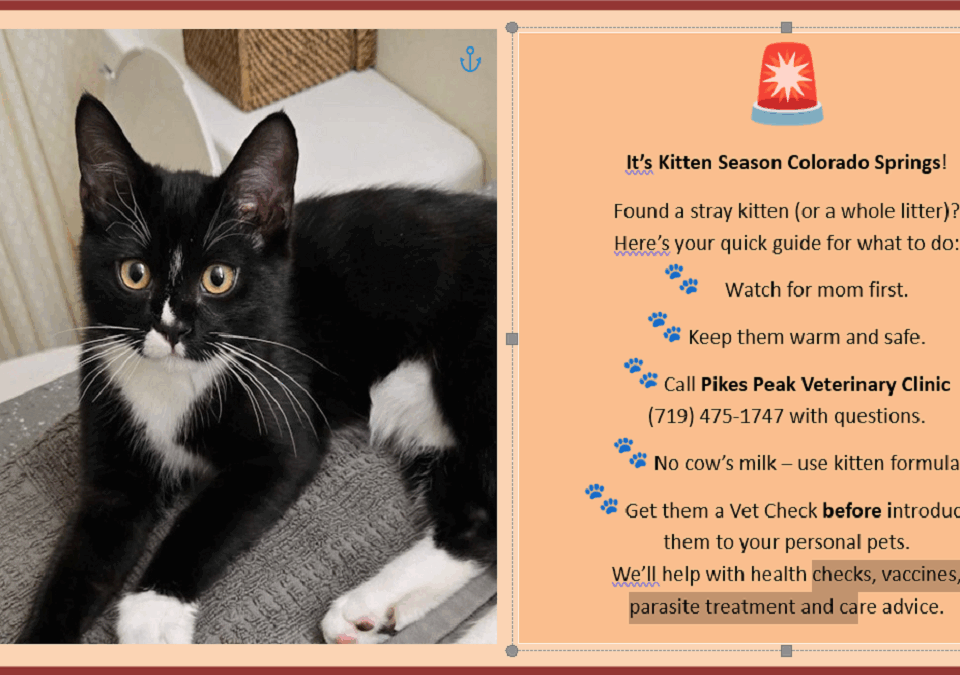
Going Back to Work? Your Dog May Not Like It!
August 8, 2021
Breed Specific: The Labrador Retriever
October 15, 2021Pikes Peak Vet wants to be proactive in helping clients understand the breeds that they adopt and what their special needs might be. This month we are highlighting the friendly and curious Beagle.
These adorable, easygoing dogs are excellent hunting dogs. Being bred to hunt in packs, they do best when with their humans or other pets. Their fun side and happy expressions will keep you giggling! Beagles are excellent family dogs, but do require plenty of exercise and playtime. They can also be quite noisy, so training to keep their barking to a minimum is highly encouraged.
Height of Males and Females: There are two types, those that stand 13 inches and under and those that grow 13-15 inches tall.
Feeding/Treats/Weight: Discuss an appropriate diet with your veterinarian. As with most breeds, some dogs are prone to weight gain, so watch calorie consumption. Treats can be an effective training aid, but too many can cause obesity. Learn which human foods are safe for dogs and which are not. Clean, fresh water should be available at all times.
Grooming: Beagles have a double coat in lemon, red/white or tri-color, that gets heavier in winter. They shed moderately all year though more in the spring. Weekly brushing with a medium bristle brush or hound glove will remove loose hair. Bathe them only when they get into something particularly messy. Beagles’ nails should be trimmed regularly because long nails can cause pain as well as problems walking and running. Brushing teeth weekly with a canine toothpaste is recommended.
Exercise: Beagles are active, energetic dogs who need at lest an hour of exercise every day. This means hiking, walking, or working with their humans and other pack members as opposed to being alone in the back yard. Left alone inside or out for too long, they can become destructive. Known for being escape artists, an exercise area must have a fence at least five feet tall that extends underground to prevent tunneling. Always walk Beagles on a leash as they want to chase what they smell and will not be able to resist the urge to pursue a compelling scent.
Training: Early socialization and puppy training classes are a must. Treats are a wonderful training aid for Beagles who do not respond well to harsh training methods. Patience and positive reinforcement will reward you both as you work together
Over the Beagle’s 10-15 expected years, you and your vet will create a health plan to evaluate and catch any conditions that may arise.
POSSIBLE MEDICAL CONCERNS
- Epilepsy
- Obesity
- Aggression
- Heart Disease
- Glaucoma and Eye Issues
- Skin Defects
PPVC’S HEALTH PLAN FOR HEALTHY LONGEVITY OF YOUR BEAGLE
Wellness Exams and Vaccinations
- Every 6-12 months as advised by your veterinarian until age 6: full physical exams including routine bloodwork;
- Pets age faster than us and tend to hide symptoms. At age 6, we recommend routine exams and bloodwork every 6 months to catch anything unexpected before it gets too firm a hold.
Other Exams and Screenings
- Beagle Health Panel
- Chest x-rays
- Regular eye exams
- Dietary education
- Training education
- Routine dentistry as needed
You can find more information on the AKC’s Beagle Page. If you have specific questions about your Beagle, reach out to your PPVC veterinarian for a quick consult and we’ll do our best to steer you in the right direction!






